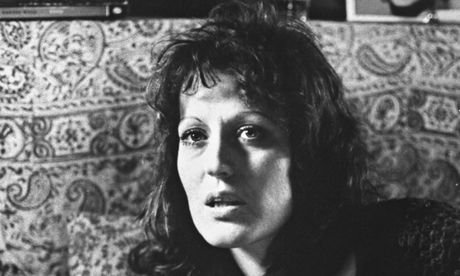
“Simply delicious: my year of wild oats” – US author Robin Rinaldi’s new book, or to give it its official title, “controversial new book”, sounds a little naff in the precis. She spent a year having an open marriage, renting a little flat during the week and returning to her husband at weekends.
The cynical reader might ask which came first, the polygamy or the publishing deal. In fact, it is deft and thoughtful, but ends in the style of the elemental morality tale: “There’s one more thing you might have guessed. I am 50 now. There will be no baby for me.” The statement is self-aware, that “no baby for me” echoing the finger-wagging language of the nursery: Rinaldi clearly knows that motherhood isn’t, in real life, a reward for good behaviour, that plenty of promiscuous women have children, and plenty of childless women are extremely conventional.
Rather, she’s mapping out the territory of monogamy – and women in relation to it – as modern morality understands it. Marriage, as an ideal state, is rewarded by the fulfilment of your biological destiny (you get a baby); this, in turn, completes you as a woman, and demonstrates your moral rectitude. Your body, mind and soul are united in this institution. An open marriage might suit your body better; celibacy might be the best state for your mind, God knows what companionship your soul really wants (probably a dog). But if we understand the human condition as the search for harmony, monogamy it is: this is so widely accepted now that women of an older generation sound like a foreign species.
“Do you think we’re supposed to be monogamous? I’m not so sure that we are. Otherwise it wouldn’t be so difficult, would it?” That question, posed at the weekend to the Telegraph magazine, came not from Erica Jong or Germaine Greer, but from Felicity Kendal. That would be quite a difficult thing for a younger actor to say (though intellectuals can still get away with it, viz Scarlett Johansson): not because it gives them the tang of sexual danger, which often counts in their favour, but because it puts them outside a normal moral universe. In terms of life for the celebrity at the outer edge of ethics, it is actually easier to be a Scientologist than to question the archetypal relational structure of a man and a woman, together forever.
What we have instead is a 1950s model of marital realities – spiced up with 21st-century sass – pitted against a bastardised understanding of the “correct” feminist response. Eva Mendes said last week: “You can’t do sweatpants … ladies, number one cause of divorce in America: sweatpants, no!” The commentariat erupted with derision, not for Mendes so much as Ryan Gosling, to whom she is married: if he doesn’t love her whatever she looks like, ladies, he’s not worthy of her. I first noticed the resurgence of this marital trope – female sexuality basically boiled down to a woman’s quest to stay attractive enough to satisfy her husband’s endless libido – at the turn of this century, when Jennifer Aniston, asked for her secrets of a happy relationship (with Brad Pitt!), said: “I wear my clothes tight, tight, tight. The right size is the tight size.” I cannot tell you how weird that sounded then; but now, this is a commonplace. To the neo-traditionalist, monogamy is made possible by feminine wiles; the feminist reply is that you shouldn’t have to dress up like a show pony to hold the interest of your intimate.
This is not what feminism has always looked like, upholding the right to wear baggy clothes within the security of a non-objectifying relationship. I have lately been looking through the early issues of Spare Rib (at the British Library; I don’t keep them in my toilet, as a warning to men who come to my house). The political debates – equal pay, the right to freedom from harassment and discrimination – would be familiar to any of us, having been completely co-opted (if not realised) as reasonable, mainstream demands; the sexual conversations are the opposite, saying things that are now largely unsayable. With giant, 1,000-word articles about thrush and herpes, the magazine demanded to talk about the condition of being female without squeamishness. It insisted on the primacy of reproductive rights, and tore through the shortcomings of domesticity and marriage.
The wellspring of all this was that women had sexual identities of their own. This moment in feminism rejected the idea that sex necessarily involved the exploitation of women by men, and with it the idea of a pay-off, where women bought emotional connection with physical generosity. These feminists scorned the notion of gender essentialism, where women were naturally monogamous and men naturally promiscuous. Robin Rinaldi, writing as a woman too young for second-wave feminism and untouched by the unremarkable third wave, wonders: “I had expended so much effort as a teenager and young woman trying to avoid the shameful female pitfall of ‘being used’. Why had no one ever mentioned the satisfaction … of sharing pleasure through my body?”
The answer is very simple: because sex-positive feminism really petered out at the end of the second wave, and the caricature of that era never mentions it. The whole point of the caricature was to neuter the movement: were you to mock women for their sexual abandon, you would run the risk of making them sound quite fun.
This fault line – does your argument rest on women being victimised by sex, or do the women in your frame have appetites of their own? – crops up a bit now, mainly in debates about pornography and sex work. Yet female sexuality is almost never discussed with the casual, celebratory self-assertion of the 70s – and that could be the legacy of the era most egregiously lost: more beautiful than broderie anglaise, more utilitarian than dungarees.

